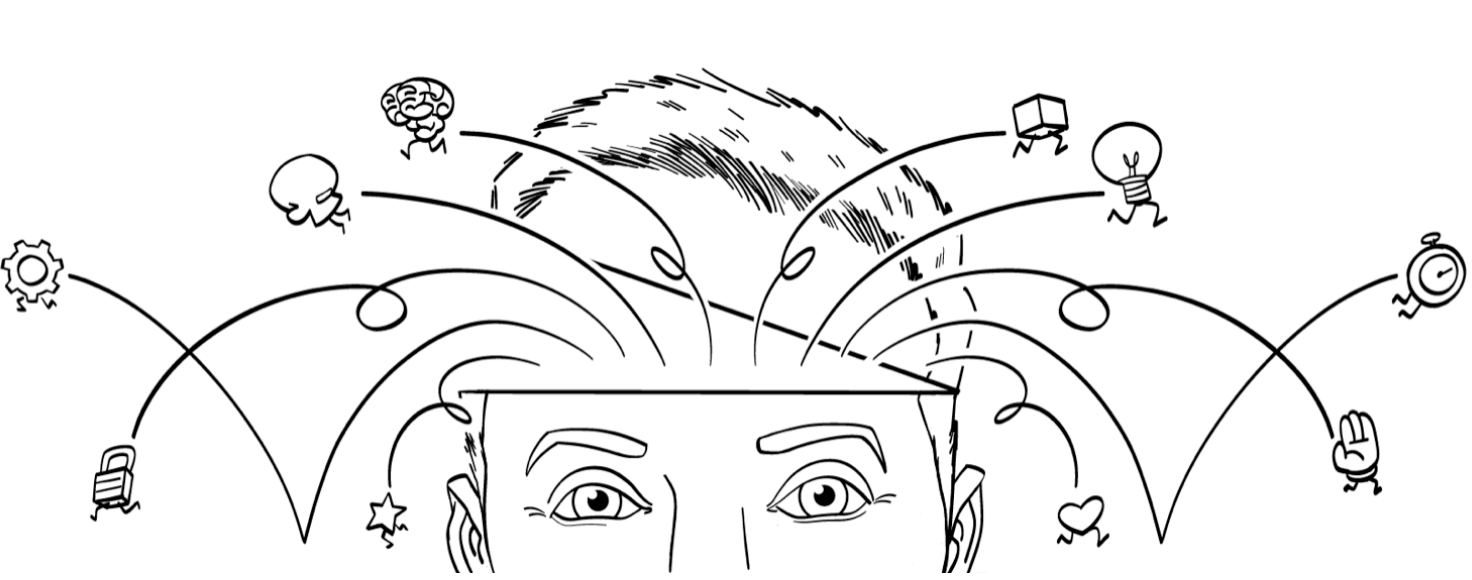Issue #6
In this edition: the crisis quotient, new tricks for old dogs, tactical laziness, Otis Redding problems, scavenger hunts, good quests, lazy Sundays, and more.

Welcome to Idea Surplus Disorder. I’m Matt Homann, the founder of Filament, and I’m glad you’re here!
In this edition: the crisis quotient, new tricks for old dogs, tactical laziness, Otis Redding problems, scavenger hunts, good quests, lazy Sundays, and more.
The Facilitator's Forum
We're launching a new invite-only program that's kind of like an "open mic night" for experienced facilitators. We'll share best practices, and each session will have time for attendees to test something with the group they'd like to try at work. Look for the dates and how to apply in next week's newsletter.
Ideas + Insights
Who in your organization has the highest Crisis Quotient?
To get started with applying this new quotient, ask a few questions. What have been the biggest leadership challenges over the last two years? Who handled them well? Who struggled? What are the patterns and common themes? If we assume complexity, ambiguity, and disruption are only going to increase over time, what skills do the future leaders of your company need?
I knew it! There are tactical benefits of laziness:
[O]nce you step away from moral judgement and focus on its most basic definition, laziness is simply the disinclination to use energy. And being lazy can actually have advantages — many of them backed by scientific research.
Maybe you can teach old dogs new tricks:
The unexpected malleability of our minds should be good news for anyone who wishes they were a bit more sociable, organised, or happy-go-lucky. Another potential benefit is that awareness of this research could help improve mental health.
Whether you are wrestling with serious issues or simply want to polish off your rougher edges, it is reassuring to know that character is ultimately within your own hands. DNA and our upbringing may predispose us to certain traits, but we also have the power to shape our future selves.
Have too many unused gadgets around the house? I ran across this highlight from Rapt by Winifred Gallagher and understood why I fall prey to this all the time:
When you must choose between a product’s usability and capability, you tend to focus on the latter, because you think, “Who knows what I’ll want to do with it someday?” If consumers are able to test both sound systems or other products before deciding, however, most will pick the simpler device. Yet as Schwartz says, “This is a very hard lesson to learn. We all have a gadget sitting in a box in a closet somewhere, but we think it’s going to be different next time.”
Lots of time at work is spent looking for information vs. creating it. One way to avoid the "work scavenger hunt" is to optimize your tools for information retrieval:
The scavenger hunt occurs when you’re looking for something to complete your work—a file, document, checklist, past message—but you just can’t remember where it is ... and is a result of people operating in their own ways but having to work together as a team.
When everyone is sending and storing information in whatever way is fastest for them, it becomes difficult and time-consuming to retrieve that information later, adding to the endless scavenger hunt. The solution is to instead optimize, team-wide, for the retrieval of information.
Does your organization have the Otis Redding problem?
The "Otis Redding problem" is "holding people, groups, or businesses to too many metrics: They can’t satisfy or even think about all of them at once." The problem is not just that people don't really know what to do anymore. It's that many people, when faced with this, start doing things that reward themselves: "They end up doing what they want or the one or two things they believe are important or that will bring them rewards (regardless of senior management’s strategic intent)."
Loved this challenge! Choose Good Quests:
Even among the talented who choose a path of building, most take safe, incremental bets — another SaaS company, another turnkey consumer startup, another digital Beanie Baby. Such pursuits not only fail to push the world forward, but pose a cost in opportunity. There are important challenges facing humanity that no one is working on, including critical, and even existential challenges. In other words, if you are an exceptionally capable person, failure to pursue a good quest is not neutral. It constitutes a loss for humanity.
Among our very best, dropping out, or chasing nonsense, is actually unethical.
A Bit of Fun
Spectacular underwater photos.
Tripadvisor Summary is a clever tool that does exactly what its name implies (with a dose of AI, of course).
Extractify pulls social media posts/content out of your YouTube videos.
Have conversations with your favorite books.
Words of Wisdom
"Nothing exists except atoms and empty space. The rest is opinion." – Democritus
"Play is our brain's favorite way of learning." – Diane Ackerman
"Play is not a break from learning. It is endless, delightful, deep, engaging, practical learning." - Vince Gowmon
“Progress isn’t made by early risers. It’s made by lazy men trying to find easier ways to do something.” — Robert A. Heinlein.
"Innovation is slow suicide for any company that refuses to disrupt itself." -- Gary Hamel
"Innovation is slow suicide for any company that refuses to disrupt itself." - Gary Hamel
"If it doesn't kill you, it makes you stronger—except for innovation. Innovation kills you." – Scott Anthony
"Those who view innovation as just another task will soon be overtaken by competitors who see it as a mindset." – Walter Isaacson
“I'm a pessimist because of intelligence, but an optimist because of will." – Antonio Gramsci’s
